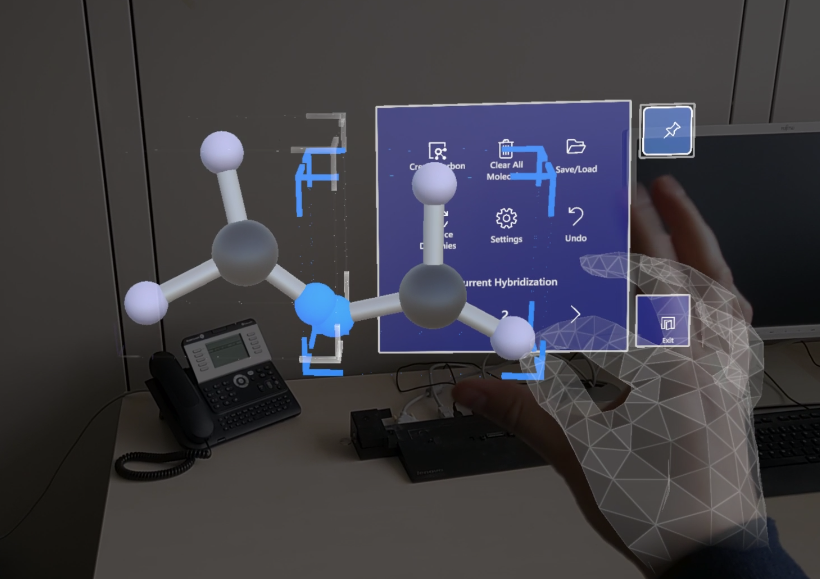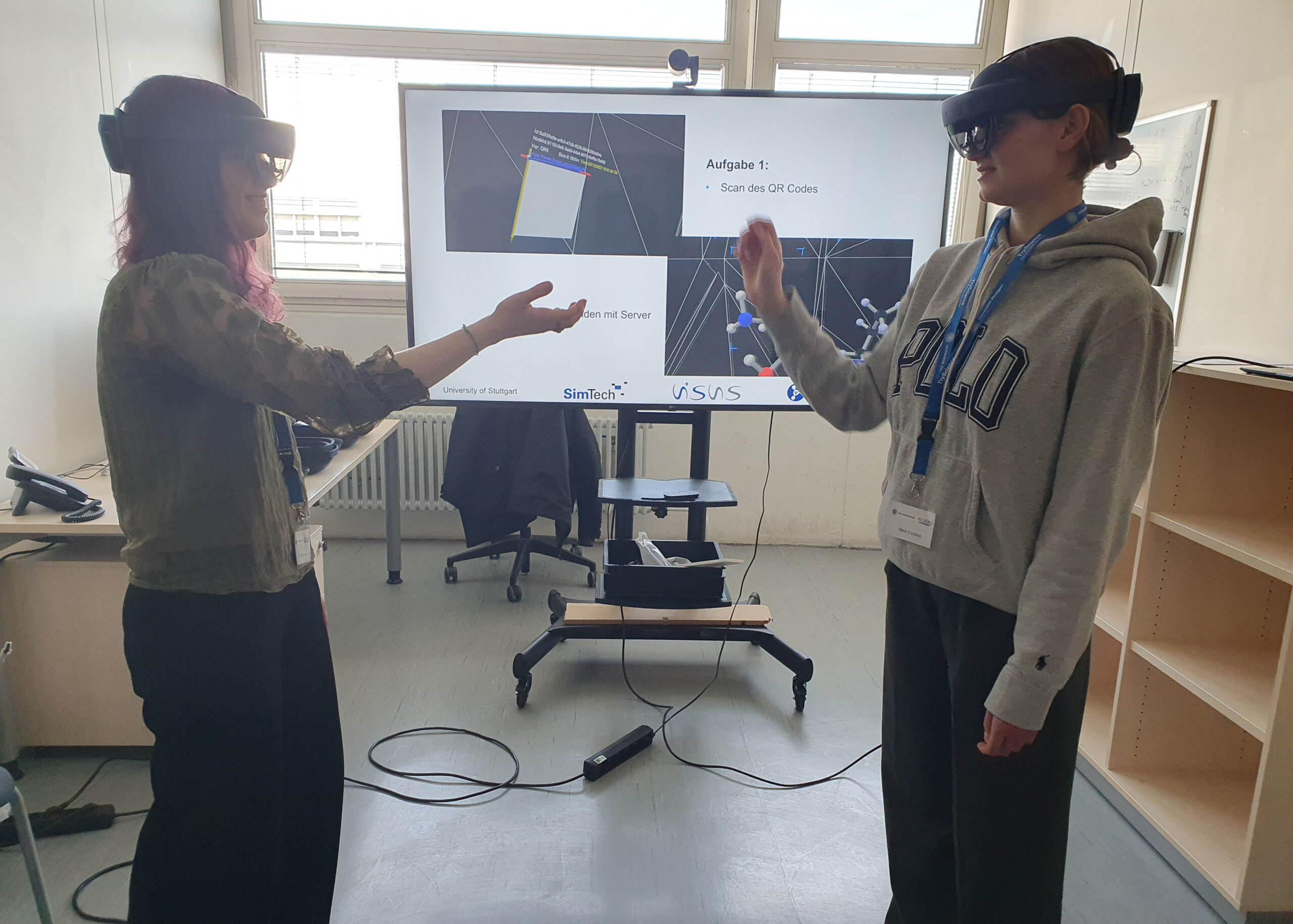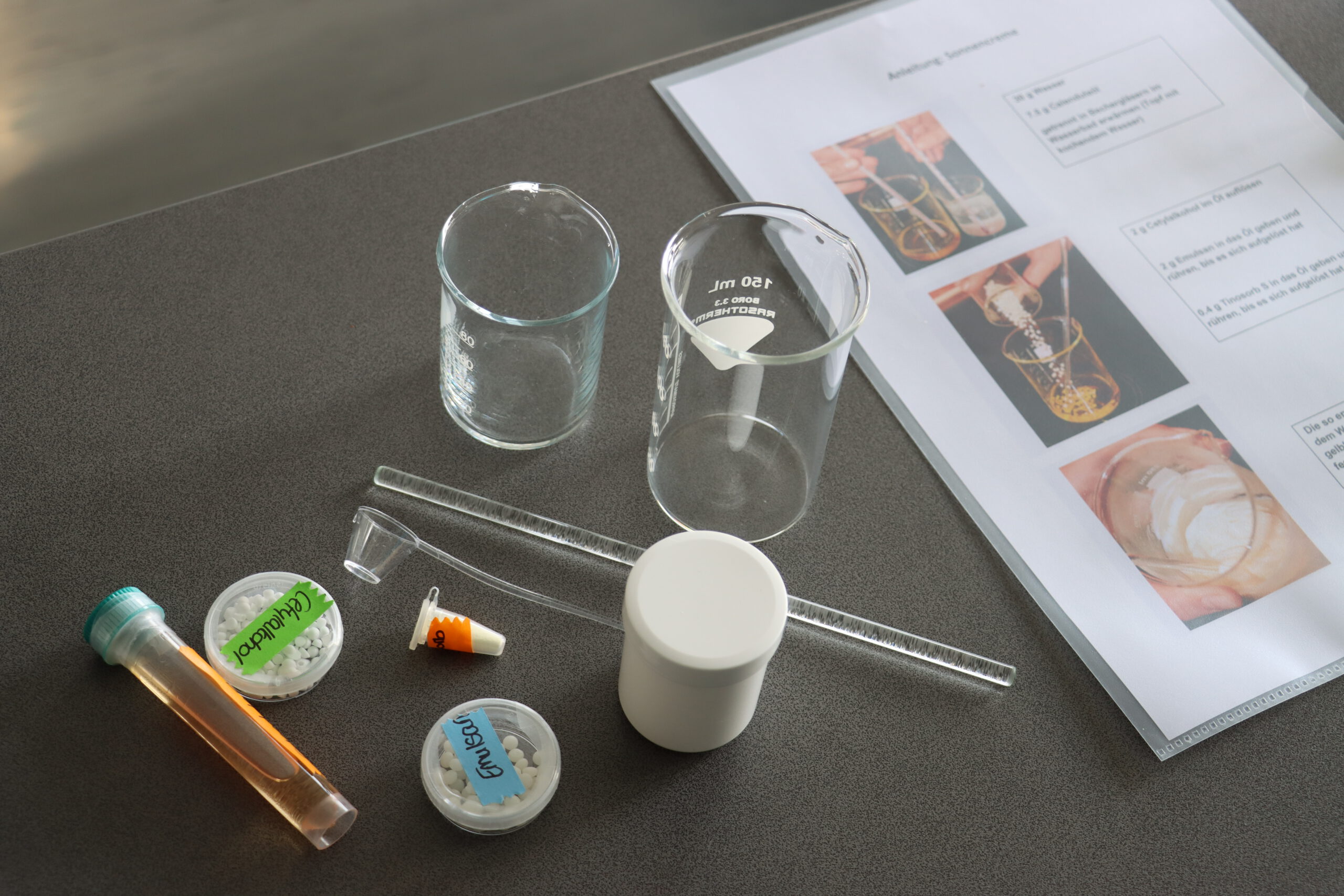Girls’ Day is an initiative to motivate female students (and those who identify as female) to pursue careers in science, technology, engineering and/or mathematics (STEM) by giving them the opportunity to gain hands-on experience in these fields.
Three exciting workshops were offered at the Department of Chemistry this year, all were conducted in German.
In the first part of the workshop “Das Kosmetiklabor: Herstellung und Charakterisierung eines Sonnenschutzmittels”, offered by the Institute of Physical Chemistry, the students learned about emulsions and surfactants in a lecture by Prof. Dr. Cosima Stubenrauch, Dean of the Faculty of Chemistry at the University of Stuttgart.
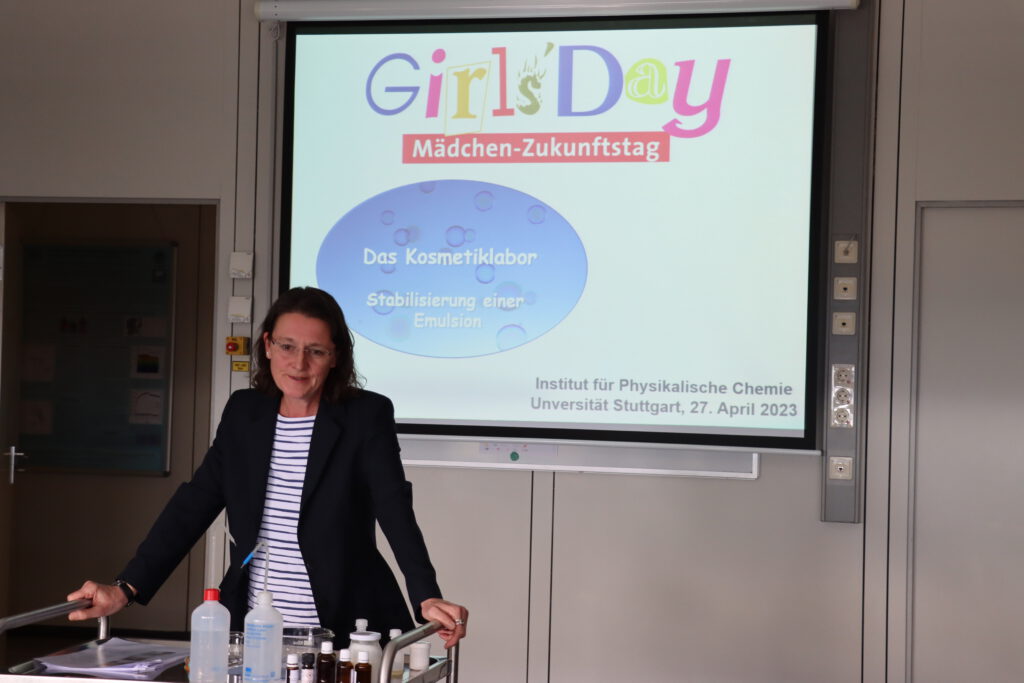
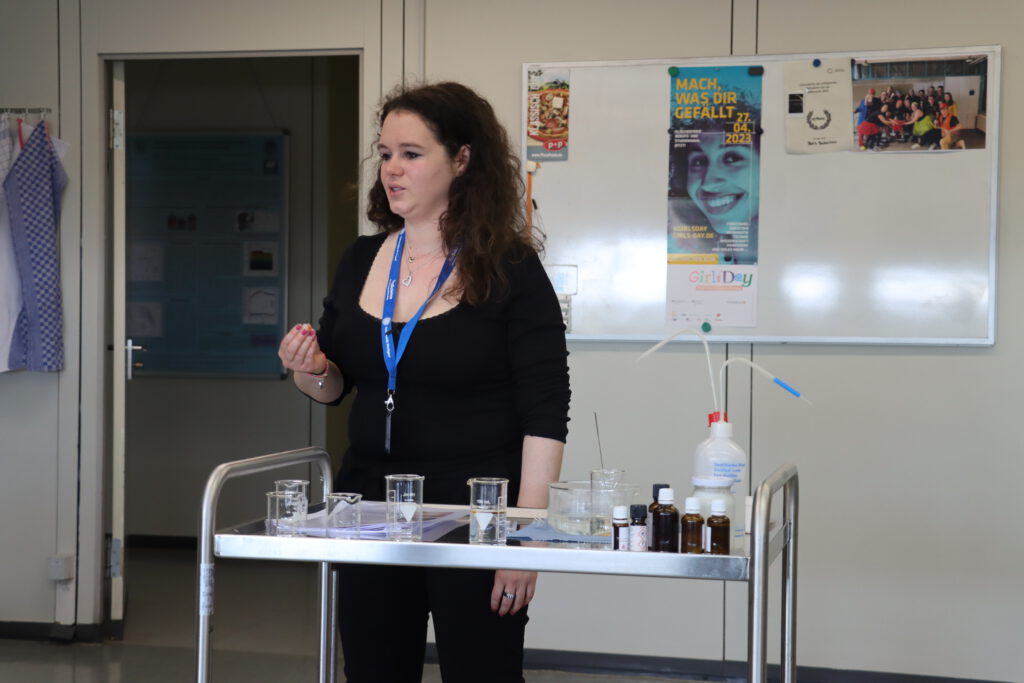
Afterwards, the girls were shown how to make their own sunscreen under the guidance of Dr. Tamara Schad, Dr. Natalie Preisig and Ms. Diana Zauser. In this process, the girls gained some insight into the production of water-in-oil and oil-in-water emulsions, mixed the ingredients thoroughly and chose a fragrance for their own sunscreen, which they were allowed to take home at the end.
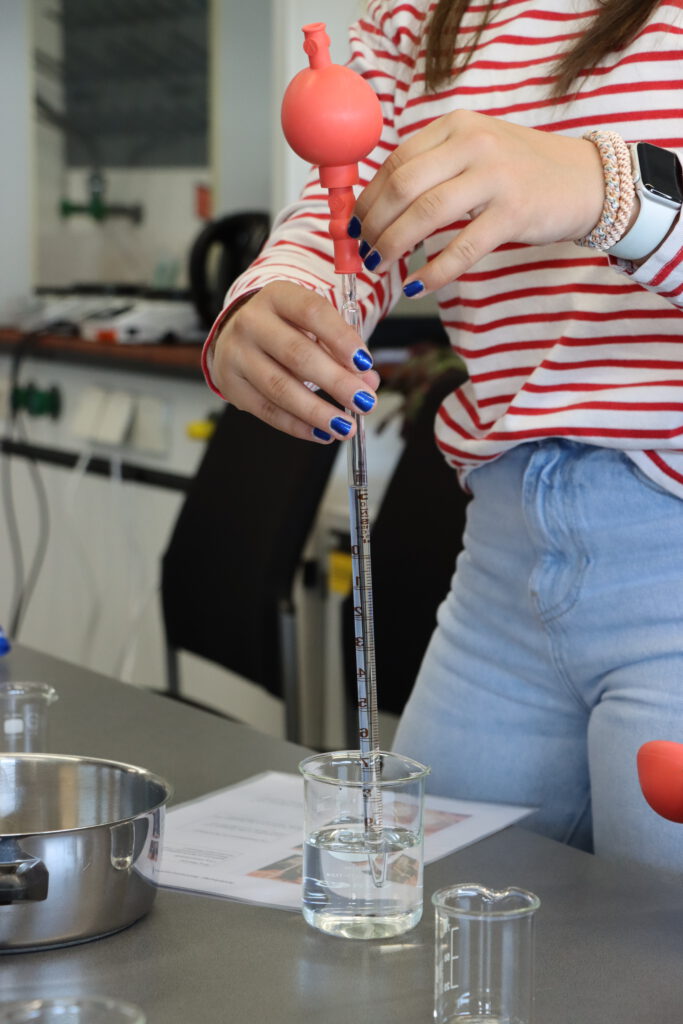
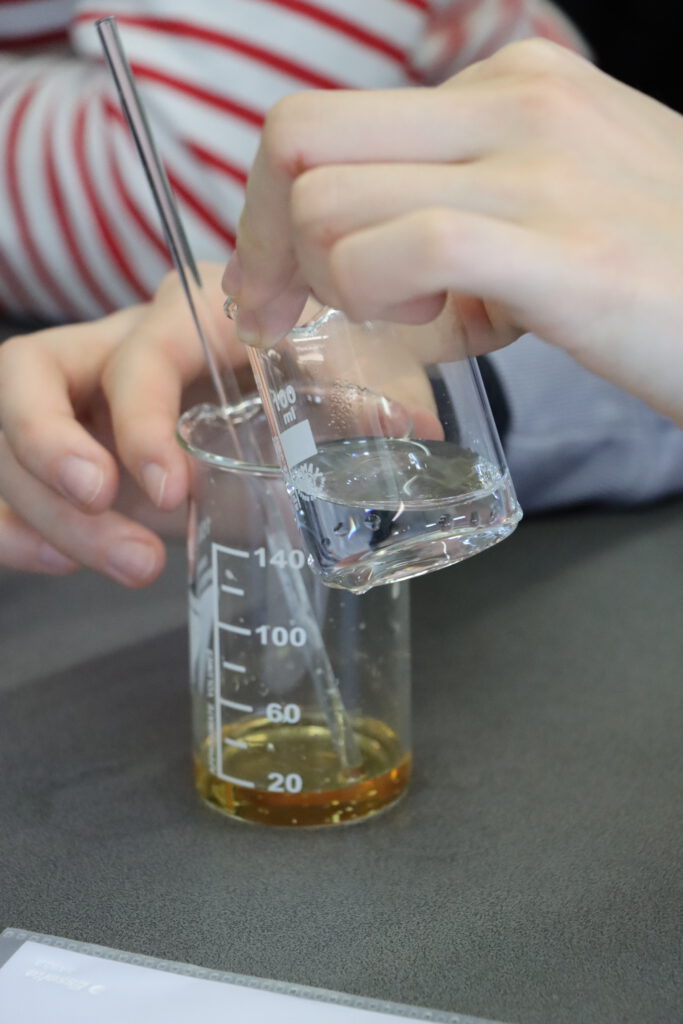
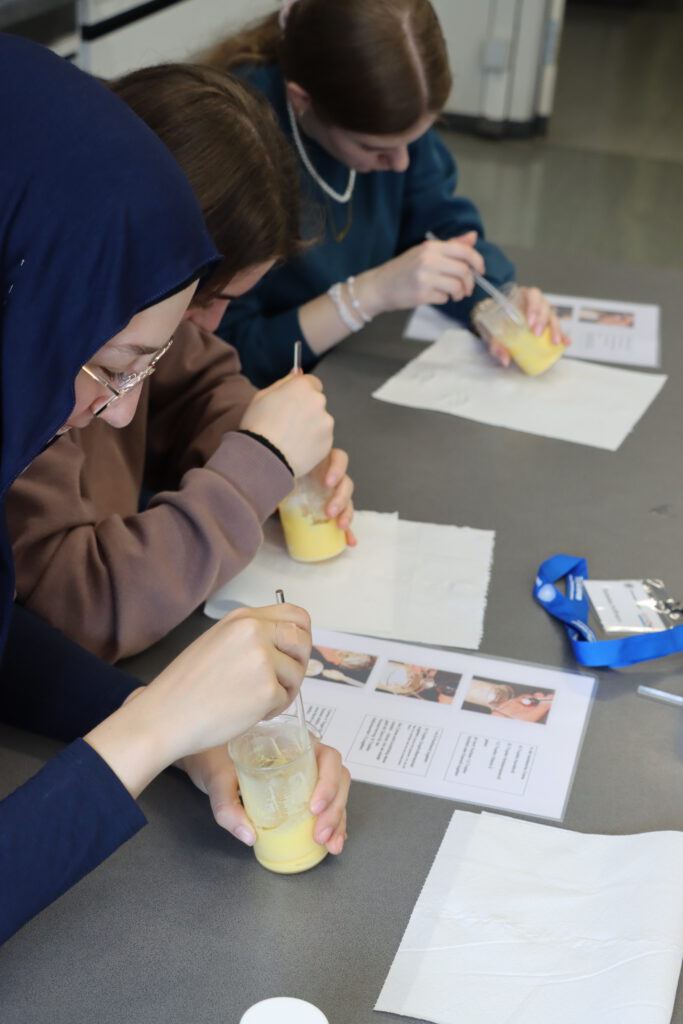
The second part of the workshop included a lecture about UV protection as well as measurements of both their own homemade sunscreen and commercially available sunscreens to find out how well the UV radiation is absorbed and thus which sunscreen offers better protection.
The second workshop “Zeolithe als Hochleistungsmaterialien beim Waschen, in der Adsorption und Katalyse”, taught by Prof. Dr. Yvonne Traa from the Institute of Technical Chemistry, provided the students with an overview of zeolites and their multi-talents: they soften water in washing, they keep insulating glass windows clear, they cool and heat, and they help to extract as much gasoline as possible from petroleum. An examination of zeolites in the lab also allowed the students to gain insight into a typical chemistry lab.
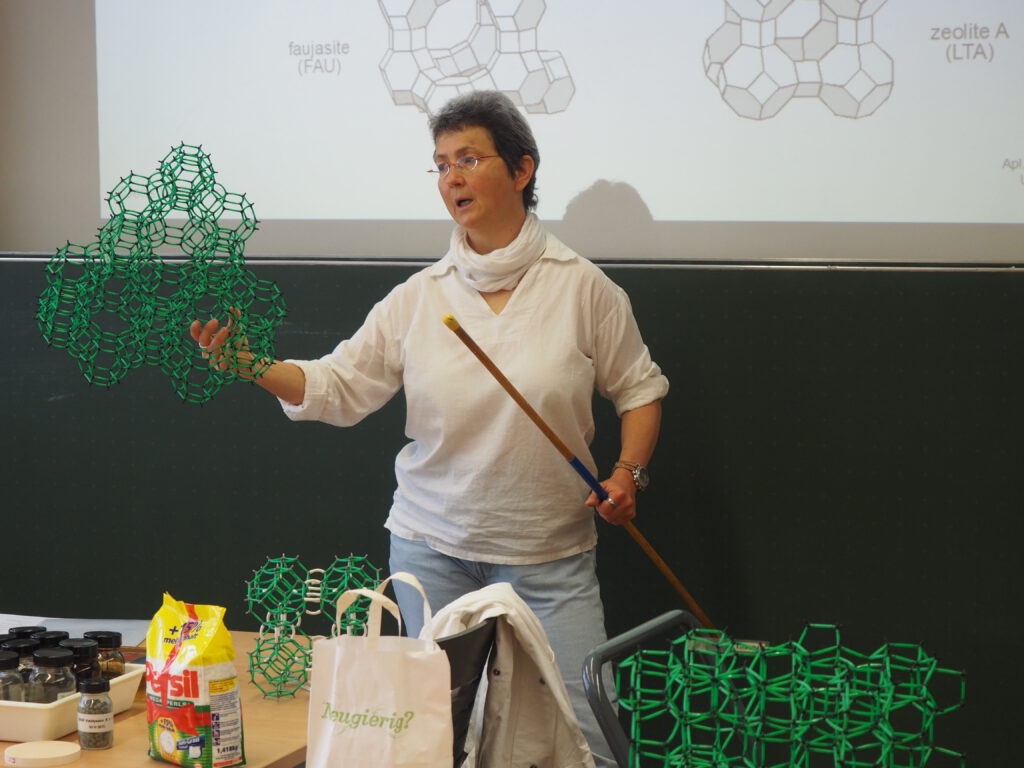
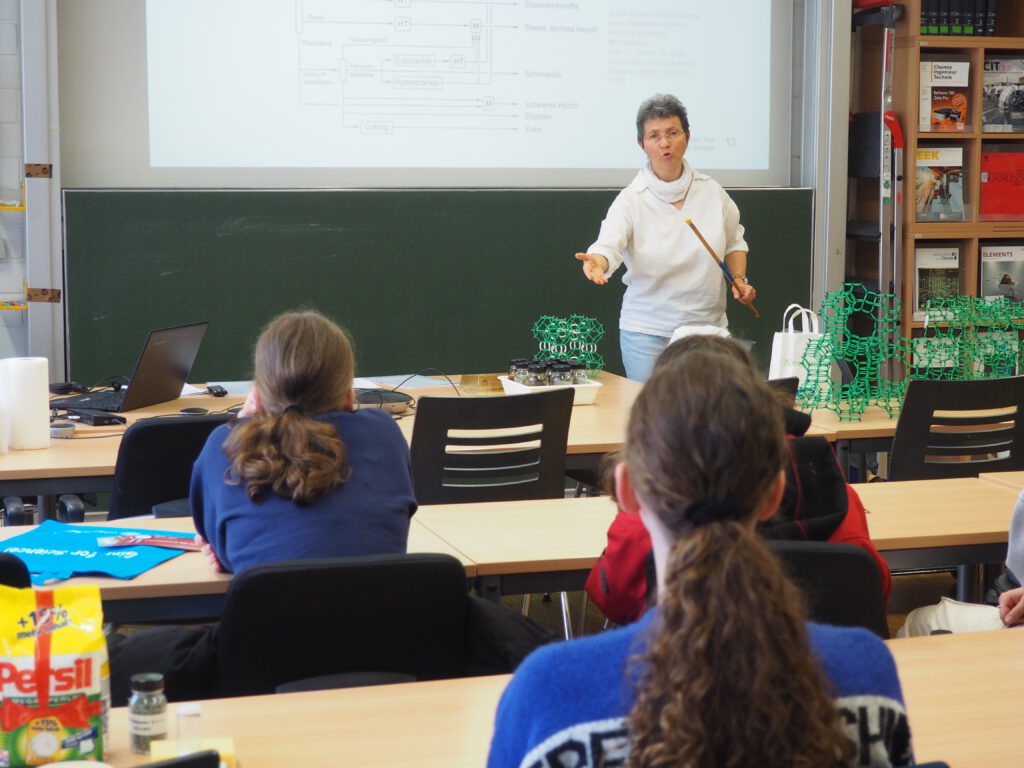
A third workshop, jointly organized by several PhD students, was offered by the Institute for Theoretical Chemistry and the Stuttgart Center for Simulation Science (SC SimTech). Titled “Upgespaced and up close: simulate the origin of life“, students were able to gain first insights into the simulation of astrochemical reactions. The day began with a short lecture by Juliane Heitkämper and Sarah Suchanek on astrochemistry and how simulations can help discover the rich chemistry in space. In particular, the pyrene molecule and its derivatives were discussed based on recent research activities. These species were found to catalyze hydrogen formation in certain areas of space.
Afterwards, the girls built their own pyrene molecule using augmented reality glasses. A highlight, for sure! Each participant was then able to perform energy calculations on her self-made molecule using her own simple computer program. This gave a first insight into what a theoretical chemist does in her day-to-day work.
